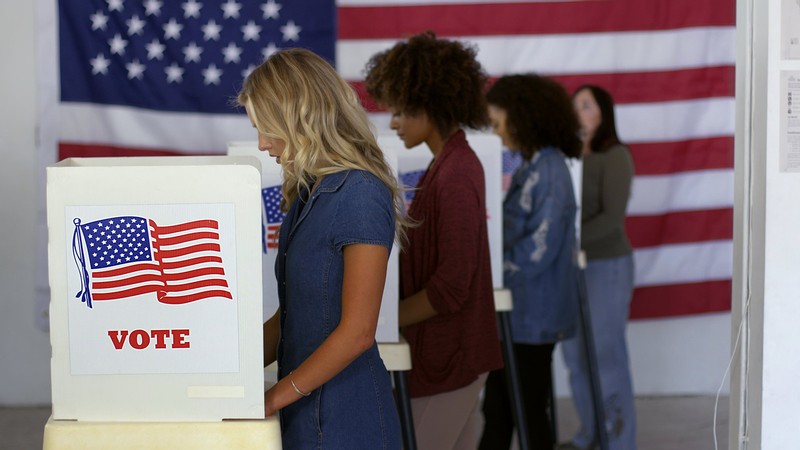Women’s Role in Shaping the 2024 U.S. Election: The Battle for Rights and Representation

As the 2024 U.S. elections loom, the pivotal role of women in the political landscape is becoming increasingly evident. Amidst a nationwide attack on women’s rights, encompassing issues such as In Vitro Fertilization (IVF), abortion, contraception, and even alarming legislation echoing Margaret Atwood’s dystopian “Handmaid’s Tale,” the Republican party finds itself treading uphill. We’ll delve deep into these contentious issues, incorporating statistics, voting trends, and firsthand accounts from former Republicans who have distanced themselves from the GOP due to its extreme standpoints.
In the face of these challenges, states like Ohio are taking a stand, with the majority voting to safeguard abortion rights and enshrine them into the state constitution. All the while, key figures like Donald Trump and congressional Republicans are vowing a nationwide abortion ban, further amplifying the tension and stakes of this election.
The Struggle for Women’s Rights
The past few years have seen a dramatic escalation in the assault on women’s rights. Anti-abortion laws have swept across multiple states, with Texas leading the charge with its near-total ban on abortions post six weeks of pregnancy.
The threat extends to IVF and contraception as well, with proposed legislature in certain states that could classify embryos used in IVF as ‘human beings,’ thereby putting IVF treatments and the women who need them in jeopardy. Simultaneously, contraception access is being chipped away, with the affordability and availability of birth control under constant threat.
Adding to the dystopian narrative, some states have even proposed “Handmaid’s Tale”-esque legislation to prevent women from traveling out of state, further infringing upon their basic rights and freedoms.
The Republican Challenge
The GOP finds itself in a precarious position. High-profile figures such as Donald Trump and leading congressional Republicans have publicly vowed to enforce a nationwide abortion ban. This has not only sparked widespread outrage and fear but has also led to a notable exodus within the party, even from republican house members now quitting or retiring.
Former lifelong Republican, Barbara Comstock, expressed her disillusionment, stating, “As a woman, as a mother, I can’t stand by a party that is actively working to strip away rights from women and return us to a darker time.”
The Democratic Response and Ohio’s Stand
In contrast, Democrats have been vocal in their support for women’s rights. States like Ohio are leading the charge, with the majority voting to secure abortion rights and embed them into the state’s constitution. Ohio’s recent referendum saw a stunning 72% of the population voting in favor of this measure, signifying a strong pro-choice sentiment within the state.
Women voters will play an instrumental role in the 2024 election. As per Pew Research Center, in the 2018 midterm elections, 59% of women voted for the Democratic candidate in their district, a 4% increase from 2016. This trend demonstrates the growing political power of women and their potential to swing the election outcome. According to a new Quinnipiac poll, the majority of women voters support Biden over Trump.
The 2024 U.S. election will undoubtedly be a crucial turning point for women’s rights. The battle lines have been drawn, and the stakes have never been higher. As voters, as advocates, and as leaders, women stand poised to shape the future of the nation. Their voices, their votes, and their choices will determine the direction the U.S. takes in the years to come.
